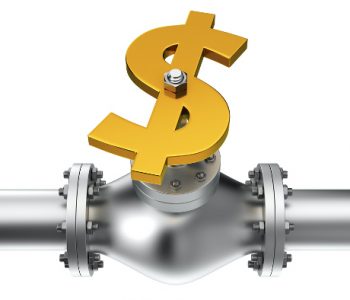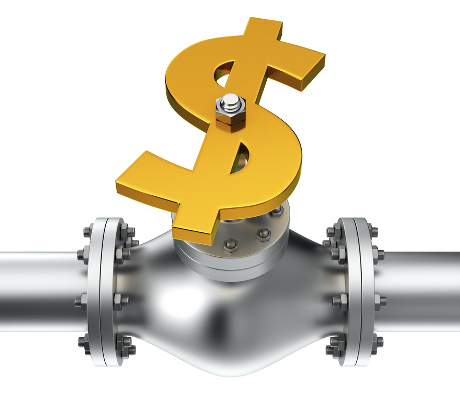TC Pipelines LP: This High-Dividend Stock Now Yields 7%

TCP Stock Should Be Taken Seriously
TC Pipelines LP (NYSE:TCP) stock is a stock that pays a high dividend and continues to grow it over time. The company operates in the energy pipeline sector in North America, with its main focus being the U.S. Pipeline companies have a long history of having steady cash flow, and unlike the oil industry, earnings are more predictable.
Let me explain three reasons why high-dividend stock investors should consider owning TCP stock.
Continued Dividend Payout to Shareholders
Ever since the company became public in 1999, TC Pipelines has had a strict policy to always pay out a dividend. For high-dividend stock investors, the more exciting part of this story is that since the initial public offering, the dividend has seen an increase 17 out of 18 years. The very first dividend payout out to shareholders was $0.16 in 1999, and today, the quarterly payment is $0.94; this is an increase of 587% over the 18-year period. Based on the current price of $50.00, the shares are yielding 7.52%. (Source: “Distribution History,” TC Pipelines LP, last accessed November 2, 2016.)
One reason that there were many dividend hikes over the years was because pipelines are an inflation-hedged toll business. As inflation increases, so does the cost to use a pipeline company’s services. Oil contracts tend to vary in price and are usually linked to the Producer Price Index. Even though the oil price itself can fluctuate in price each day, the pipeline business is one with steady cash flows that continues to reward dividend investors. Those same steady cash flows have caused the sector to have fewer companies.
Possible Acquisition Target
There has recently been a lot of activity in the U.S. pipeline space. However, the companies creating this noise are actually in Canada. TransCanada Corporation (NYSE:TRP), which owns approximately 25% of TC Pipelines’ outstanding units, has acquired Columbia Pipeline Group, Inc. (NYSE:CPGX) for approximately $13.0 billion. An even larger deal saw Enbridge Inc (NYSE:ENB) purchase Spectra Energy Corp. (NYSE:SE) in a $37.0-billion transaction. (Source: “Enbridge Inc deal to buy Spectra creates ‘energy infrastructure colossus’ with $48 billion of future projects,” Financial Post, September 6, 2016.)
Even though the market cap for TCP stock is “only” $3.2 billion, it still has a target on its back. Rather than being a large part of earnings for a company; TCP stock could be a small tuck-in acquisition for a larger player, with TransCanada Corporation, with its current shares, being the biggest potential suitor for the assets down the road. If TC Pipelines does get taken out for a premium one day then great, but in the meantime, high-dividend stock investors can collect their dividends.
Pipelines Are Preferred
In recent years competition is coming from the railway industry. The preferred method between the two is pipelines because they are 4.5 times safer. Another key advantage for TCP partners transporting using a pipeline is cheaper compared using the railway. Just taking a look at transporting a barrel of oil out of Texas using a pipeline would cost any where from $2.71 to $3.78 compared to railway cost of $10.38 to $10.55. Moving a few barrels of once in a while is not a big deal. However when the number is millions, cost such as this will be carefully looked at. (Source: “About Pipelines,” Association of Oil Pipe Lines, August 22, 2014)
There are high barriers to entry to operate a business in the pipeline sector. Once the capital is in place which would be millions or billions of dollars; agreements with the government and oil and gas production companies need to be in place. Then after everything is approved then construction can start, which can be a long process. TCP is a company that is already in operations and just continues to generate cash flow.
Final Thoughts on TCP Stock
TC Pipelines LP is a company that can be recommended to high-dividend stock investors due to the company’s history of rewarding shareholders. Over the past five years, the shares have returned an average of 12%.











